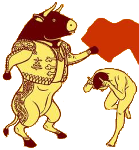|
|
|
|
|

|
| # ? May 26, 2024 10:33 |
|
|
|
|
|
im fey
|
|
|
|
reported
|
|
|
|
same
|
|
|
|
The station wagons arrived at noon, a long shining line that coursed through the west campus. In single file they eased around the orange I-beam sculpture and moved toward the dormitories. The roofs of the station wagons were loaded down with carefully secured suitcases full of light and heavy clothing; with boxes of blankets, boots and shoes, stationery and books, sheets, pillows, quilts; with rolled-up rugs and sleeping bags; with bicycles, skis, rucksacks, English and Western saddles, inflated rafts. As cars slowed to a crawl and stopped, students sprang out and raced to the rear doors to begin removing the objects inside; the stereo sets, radios, personal computers; small refrigerators and table ranges; the cartons of phonograph records and cassettes; the hairdryers and styling irons; the tennis rackets, soccer balls, hockey and lacrosse sticks, bows and arrows; the controlled substances, the birth control pills and devices; the jurik food still in shopping bags-onion-and-garlic chips, nacho thins, peanut creme patties, Waffelos and Kabooms, fruit chews and toffee popcorn; the Dum-Dum pops, the Mystic mints. I've witnessed this spectacle every September for twenty-one years. It is a brilliant event, invariably. The students greet each other with comic cries and gestures of sodden collapse. Their summer has been bloated with criminal pleasures, as always. The parents stand sun-dazed near their automobiles, seeing images of themselves in every direction. The conscientious suntans. The well-made faces and wry looks. They feel a sense of renewal, of communal recognition. The women crisp and alert, in diet trim, knowing people's names. Their husbands content to measure out the time, distant but ungrudging, accomplished in parenthood, something about them suggesting massive insurance coverage. This assembly of station wagons, as much as anything they might do in the course of the year, more than formal liturgies or laws, tells the parents they are a collection of the like-minded and the spiritually akin, a people, a nation. I left my office and walked down the hill and into town. There are houses in town with turrets and two-story porches where people sit in the shade of ancient maples. There are Greek revival and Gothic churches. There is an insane asylum with an elongated portico, ornamented dormers and a steeply pitched roof topped by a pineapple finial. Babette and I and our children by previous marriages live at the end of a quiet street in what was once a wooded area with deep ravines. There is an expressway beyond the backyard now, well below us, and at night as we settle into our brass bed the sparse traffic washes past, a remote and steady murmur around our sleep, as of dead souls babbling at the edge of a dream. I am chairman of the department of Hitler studies at the College-on-the-Hill. I invented Hitler studies in North America in March of 1968. It was a cold bright day with intermittent winds out of the east. When I suggested to the chancellor that we might build a whole department around Hitler's life and work, he was quick to see the possibilities. It was an immediate and electrifying success. The chancellor went on to serve as adviser to Nixon, Ford and Carter before his death on a ski lift in Austria. At Fourth and Elm, cars turn left for the supermarket. A policewoman crouched inside a boxlike vehicle patrols the area looking for cars parked illegally, for meter violations, lapsed inspection stickers. On telephone poles all over town there are homemade signs concerning lost dogs and cats, sometimes in the handwriting of a child. 2 Babette is tall and fairly ample; there is a girth and heft to her. Her hair is a fanatical blond mop, a particular tawny hue that used to be called dirty blond. If she were a petite woman, the hair would be too cute, too mischievous and contrived. Size gives her tousled aspect a certain seriousness. Ample women do not plan such things. They lack the guile for conspiracies of the body. "You should have been there," I said to her. "Where?" "It's the day of the station wagons." "Did I miss it again? You're supposed to remind me." "They stretched all the way down past the music library and onto the interstate. Blue, green, burgundy, brown. They gleamed in the sun like a desert caravan." "You know I need reminding, Jack." Babette, disheveled, has the careless dignity of someone too preoccupied with serious matters to know or care what she looks like. Not that she is a gift-bearer of great things as the world generally reckons them. She gathers and tends the children, teaches a course in an adult education program, belongs to a group of volunteers who read to the blind. Once a week she reads to an elderly man named Treadwell who lives on the edge of town. He is known as Old Man Treadwell, as if he were a landmark, a rock formation or brooding swamp. She reads to him from the National Enquirer, the National Examiner, the National Express, the Globe, the World, the Star. The old fellow demands his weekly dose of cult mysteries. Why deny him? The point is that Babette, whatever she is doing, makes me feel sweetly rewarded, bound up with a full-souled woman, a lover of daylight and dense life, the miscellaneous swarming air of families. I watch her all the time doing things in measured sequence, skillfully, with seeming ease, unlike my former wives, who had a tendency to feel estranged from the objective world-a self-absorbed and high-strung bunch, with ties to the intelligence community. "It's not the station wagons I wanted to see. What are the people like? Do the women wear plaid skirts, cable-knit sweaters? Are the men in hacking jackets? What's a hacking jacket?" "They've grown comfortable with their money," I said. "They genuinely believe they're entitled to it. This conviction gives them a kind of rude health. They glow a little." "I have trouble imagining death at that income level," she said. "Maybe there is no death as we know it. Just documents changing hands." "Not that we don't have a station wagon ourselves." "It's small, it's metallic gray, it has one whole rusted door." "Where is Wilder?" she said, routinely panic-stricken, calling out to the child, one of hers, sitting motionless on his tricycle in the backyard. Babette and I do our talking in the kitchen. The kitchen and the bedroom are the major chambers around here, the power haunts, the sources. She and I are alike in this, that we regard the rest of the house as storage space for furniture, toys, all the unused objects of earlier marriages and different sets of children, the gifts of lost in-laws, the hand-me-downs and rummages. Things, boxes. Why do these possessions carry such sorrowful weight? There is a darkness attached to them, a foreboding. They make me wary not of personal failure and defeat but of something more general, something large in scope and content. She came in with Wilder and seated him on the kitchen counter. Denise and Steffie came downstairs and we talked about the school supplies they would need. Soon it was time for lunch. We entered a period of chaos and noise. We milled about, bickered a little, dropped utensils. Finally we were all satisfied with what we'd been able to snatch from the cupboards and refrigerator or swipe from each other and we began quietly plastering mustard or mayonnaise on our brightly colored food. The mood was one of deadly serious anticipation, a reward hard-won. The table was crowded and Babette and Denise elbowed each other twice, although neither spoke. Wilder was still seated on the counter surrounded by open cartons, crumpled tinfoil, shiny bags of potato chips, bowls of pasty substances covered with plastic wrap, flip-top rings and twist ties, individually wrapped slices of orange cheese. Heinrich came in, studied the scene carefully, my only son, then walked out the back door and disappeared. "This isn't the lunch I'd planned for myself," Babette said. "I was seriously thinking yogurt and wheat germ." "Where have we heard that before?" Denise said. "Probably right here," Steffie said. "She keeps buying that stuff." "But she never eats it," Steffie said. "Because she thinks if she keeps buying it, she'll have to eat it just to get rid of it. It's like she's trying to trick herself." "It takes up half the kitchen." "But she throws it away before she eats it because it goes bad," Denise said. "So then she starts the whole thing all over again." "Wherever you look," Steffie said, "there it is." "She feels guilty if she doesn't buy it, she feels guilty if she buys it and doesn't eat it, she feels guilty when she sees it in the fridge, she feels guilty when she throws it away." "It's like she smokes but she doesn't," Steffie said. Denise was eleven, a hard-nosed kid. She led a more or less daily protest against those of her mother's habits that struck her as wasteful or dangerous. I defended Babette. I told her I was the one who needed to show discipline in matters of diet. I reminded her how much I liked the way she looked. I suggested there was an honesty inherent in bulkiness if it is just the right amount. People trust a certain amount of bulk in others. But she was not happy with her hips and thighs, walked at a rapid clip, ran up the stadium steps at the neoclassical high school. She said I made virtues of her flaws because it was my nature to shelter loved ones from the truth. Something lurked inside the truth, she said. The smoke alarm went off in the hallway upstairs, either to 'et us know the battery had just died or because the house was on fire. We finished our lunch in silence. 3 Department heads wear academic robes at the College-on-the-Hill. Not grand sweeping full-length affairs but sleeveless tunics puckered at the shoulders. I like the idea. I like clearing my arm from the folds of the garment to look at my watch. The simple act of checking the time is transformed by this flourish. Decorative gestures add romance to a life. Idling students may see time itself as a complex embellishment, a romance of human consciousness, as they witness the chairman walking across campus, crook'd arm emerging from his medieval robe, the digital watch blinking in late summer dusk. The robe is black, of course, and goes with almost anything. There is no Hitler building as such. We are quartered in Centenary Hall, a dark brick structure we share with the popular culture department, known officially as American environments. A curious group. The teaching staff is composed almost solely of New York émigrés, smart, thuggish, movie-mad, trivia-crazed. They are here to decipher the natural language of the culture, to make a formal method of the shiny pleasures they'd known in their Europe-shadowed childhoods-an Aristotelianism of bubble gum wrappers and detergent jingles. The department head is Alfonse (Fast Food) Stompanato, a broad-chested glowering man whose collection of prewar soda pop bottles is on permanent display in an alcove. All his teachers are male, wear rumpled clothes, need haircuts, cough into their armpits. Together they look like teamster officials assembled to identify the body of a mutilated colleague. The impression is one of pervasive bitterness, suspicion and intrigue. An exception to some of the above is Murray Jay Siskind, an ex-sportswriter who asked me to have lunch with him in the dining room, where the institutional odor of vaguely defined food aroused in me an obscure and gloomy memory. Murray was new to the Hill, a stoop-shouldered man with little round glasses and an Amish beard. He was a visiting lecturer on living icons and seemed embarrassed by what he'd gleaned so far from his colleagues in popular culture. "I understand the music, I understand the movies, I even see how comic books can tell us things. But there are full professors in this place who read nothing but cereal boxes." "It's the only avant-garde we've got." "Not that I'm complaining. I like it here. I'm totally enamored of this place. A small-town setting. I want to be free of cities and sexual entanglements. Heat. This is what cities mean to me. You get off the train and walk out of the station and you are hit with the full blast. The heat of air, traffic and people. The heat of food and sex. The heat of tall buildings. The heat that floats out of the subways and the tunnels. It's always fifteen degrees hotter in the cities. Heat rises from the sidewalks and falls from the poisoned sky. The buses breathe heat. Heat emanates from crowds of shoppers and office workers. The entire infrastructure is based on heat, desperately uses up heat, breeds more heat. The eventual heat death of the universe that scientists love to talk about is already well underway and you can feel it happening all around you in any large or medium-sized city. Heat and wetness." "Where are you living, Murray?" "In a rooming house. I'm totally captivated and intrigued. It's a gorgeous old crumbling house near the insane asylum. Seven or eight boarders, more or less permanent except for me. A woman who harbors a terrible secret. A man with a haunted look. A man who never comes out of his room. A woman who stands by the letter box for hours, waiting for something that never seems to arrive. A man with no past. A woman with a past. There is a smell about the place of unhappy lives in the movies that I really respond to." "Which one are you?" I said. "I'm the Jew. What else would I be?" There was something touching about the fact that Murray was dressed almost totally in corduroy. I had the feeling that since the age of eleven in his crowded plot of concrete he'd associated this sturdy fabric with higher learning in some impossibly distant and tree-shaded place. "I can't help being happy in a town called Blacksmith," he said. "I'm here to avoid situations. Cities are full of situations, sexually cunning people. There are parts of my body I no longer encourage women to handle freely. I was in a situation with a woman in Detroit. She needed my semen in a divorce suit. The irony is that I love women. I fall apart at the sight of long legs, striding, briskly, as a breeze carries up from the river, on a weekday, in the play of morning light. The second irony is that it's not the bodies of women that I ultimately crave but their minds. The mind of a woman. The delicate chambering and massive unidirectional flow, like a physics experiment. What fun it is to talk to an intelligent woman wearing stockings as she crosses her legs. That little staticky sound of rustling nylon can make me happy on several levels. The third and related irony is that it's the most complex and neurotic and difficult women that I am invariably drawn to. I like simple men and complicated women." Murray 's hair was tight and heavy-looking. He had dense brows, wisps of hair curling up the sides of his neck. The small stiff beard, confined to his chin and unaccompanied by a mustache, seemed an optional component, to be stuck on or removed as circumstances warranted. "What kind of lectures do you plan giving?" "That's exactly what I want to talk to you about," he said. "You've established a wonderful thing here with Hitler. You created it, you nurtured it, you made it your own. Nobody on the faculty of any college or university in this part of the country can so much as utter the word Hitler without a nod in your direction, literally or metaphorically. This is the center, the unquestioned source. He is now your Hitler, Gladney's Hitler. It must be deeply satisfying for you. The college is internationally known as a result of Hitler studies. It has an identity, a sense of achievement. You've evolved an entire system around this figure, a structure with countless substructures and interrelated fields of study, a history within history. I marvel at the effort. It was masterful, shrewd and stunningly preemptive. It's what I want to do with Elvis." Several days later Murray asked me about a tourist attraction known as the most photographed barn in America. We drove twenty-two miles into the country around Farmington. There were meadows and apple orchards. White fences trailed through the rolling fields. Soon the signs started appearing. THE MOST PHOTOGRAPHED BARN IN AMERICA. We counted five signs before we reached the site. There were forty cars and a tour bus in the makeshift lot. We walked along a cowpath to the slightly elevated spot set aside for viewing and photographing. All the people had cameras; some had tripods, telephoto lenses, filter kits. A man in a booth sold postcards and slides-pictures of the barn taken from the elevated spot. We stood near a grove of trees and watched the photographers. Murray maintained a prolonged silence, occasionally scrawling some notes in a little book. "No one sees the barn," he said finally. A long silence followed. "Once you've seen the signs about the barn, it becomes impossible to see the barn." He fell silent once more. People with cameras left the elevated site, replaced at once by others. "We're not here to capture an image, we're here to maintain one. Every photograph reinforces the aura. Can you feel it, Jack? An accumulation of nameless energies." There was an extended silence. The man in the booth sold postcards and slides. "Being here is a kind of spiritual surrender. We see only what the others see. The thousands who were here in the past, those who will come in the future. We've agreed to be part of a collective perception. This literally colors our vision. A religious experience in a way, like all tourism." Another silence ensued. "They are taking pictures of taking pictures," he said. He did not speak for a while. We listened to the incessant clicking of shutter release buttons, the rustling crank of levers that advanced the film. "What was the barn like before it was photographed?" he said. "What did it look like, how was it different from other barns, how was it similar to other barns? We can't answer these questions because we've read the. signs, seen the people snapping the pictures. We can't get outside the aura. We're part of the aura. We're here, we're now." He seemed immensely pleased by this. 4 When times are bad, people feel compelled to overeat. Blacksmith is full of obese adults and children, baggy-pantsed, short-legged, waddling. They struggle to emerge from compact cars; they don sweatsuits and run in families across the landscape; they walk down the street with food in their faces; they eat in stores, cars, parking lots, on bus lines and movie lines, under the stately trees. Only the elderly seem exempt from the fever of eating. If they are sometimes absent from their own words and gestures, they are also slim and healthy-looking, the women carefully groomed, the men purposeful and well dressed, selecting shopping carts from the line outside the supermarket. I crossed the high school lawn and walked to the rear of the building and toward the small open stadium. Babette was running up the stadium steps. I sat across the field in the first row of stone seats. The sky was full of streaking clouds. When she reached the top of the stadium she stopped and paused, putting her hands to the high parapet and leaning into it to rest diagonally. Then she turned and walked back down, breasts chugging. The wind rippled her oversized suit. She walked with her hands on her hips, fingers spread. Her face was tilted up, catching the cool air, and she didn't see me. When she reached the bottom step she turned to face the seats and did some kind of neck stretching exercise. Then she started running up the steps. Three times she ascended the steps, walked slowly down. There was no one around. She worked hard, hair floating, legs and shoulders working. Every time she reached the top she leaned into the wall, head down, upper body throbbing. After the last descent I met her at the edge of the playing field and embraced her, putting my hands inside the sweatband of her gray cotton pants. A small plane appeared over the trees. Babette was moist and warm, emitting a creaturely hum. She runs, she shovels snow, she caulks the tub and sink. She plays word games with Wilder and reads erotic classics aloud in bed at night. What do I do? I twirl the garbage bags and twist-tie them, swim laps in the college pool. When I go walking, joggers come up soundlessly behind me, appearing at my side, making me jump in idiotic fright. Babette talks to dogs and cats. I see colored spots out of the corner of my right eye. She plans ski trips that we never take, her face bright with excitement. I walk up the hill to school, noting the whitewashed stones that line the driveways of newer homes. Who will die first? This question comes up from time to time, like where are the car keys. It ends a sentence, prolongs a glance between us. I wonder if the thought itself is part of the nature of physical love, a reverse Darwinism that awards sadness and fear to the survivor. Or is it some inert element in the air we breathe, a rare thing like neon, with a melting point, an atomic weight? I held her in my arms on the cinder track. Kids came running our way, thirty girls in bright shorts, an improbable bobbing mass. The eager breathing, the overlapping rhythms of their footfalls. Sometimes I think our love is inexperienced. The question of dying becomes a wise reminder. It cures us of our innocence of the future. Simple things are doomed, or is that a superstition? We watched the girls come round again. They were strung out now, with faces and particular gaits, almost weightless in their craving, able to land lightly. The Airport Marriott, the Downtown Travelodge, the Sheraton Inn and Conference Center. On our way home I said, "Bee wants to visit at Christmas. We can put her in with Steffie." "Do they know each other?" 'They met at Disney World. It'll be all right." "When were you in Los Angeles?" "You mean Anaheim." "When were you in Anaheim?" "You mean Orlando. It's almost three years now." "Where was I?" she said. My daughter Bee, from my marriage to Tweedy Browner, was just starting seventh grade in a Washington suburb and was having trouble readjusting to life in the States after two years in South Korea. She took taxis to school, made phone calls to friends in Seoul and Tokyo. Abroad she'd wanted to eat ketchup sandwiches with Trix sticks. Now she cooked fierce sizzling meals of scallion bushes and baby shrimp, monopolizing Tweedy's restaurant-quality range. That night, a Friday, we ordered Chinese food and watched television together, the six of us. Babette had made it a rule. She seemed to think that if kids watched television one night a week with parents or stepparents, the effect would be to de-glamorize the medium in their eyes, make it wholesome domestic sport. Its narcotic undertow and eerie diseased brain-sucking power would be gradually reduced. I felt vaguely slighted by this reasoning. The evening in fact was a subtle form of punishment for us all. Heinrich sat silent over his egg rolls. Steffie became upset every time something shameful or humiliating seemed about to happen to someone on the screen. She had a vast capacity for being embarrassed on other people's behalf. Often she would leave the room until Denise signaled to her that the scene was over. Denise used these occasions to counsel the younger girl on toughness, the need to be mean in the world, thick-skinned. It was my own formal custom on Fridays, after an evening in front of the TV set, to read deeply in Hitler well into the night. On one such night I got into bed next to Babette and told her how the chancellor had advised me, back in 1968, to do something about my name and appearance if I wanted to be taken seriously as a Hitler innovator. Jack Gladney would not do, he said, and asked me what other names I might have at my disposal. We finally agreed that I should invent an extra initial and call myself J. A. K. Gladney, a tag I wore like a borrowed suit. The chancellor warned against what he called my tendency to make a feeble presentation of self. He strongly suggested I gain weight. He wanted me to "grow out" into Hitler. He himself was tall, paunchy, ruddy, jowly, big-footed and dull. A formidable combination. I had the advantages of substantial height, big hands, big feet, but badly needed bulk, or so he believed-an air of unhealthy excess, of padding and exaggeration, hulking massive-ness. If I could become more ugly, he seemed to be suggesting, it would help my career enormously. So Hitler gave me something to grow into and develop toward, tentative as I have sometimes been in the effort. The glasses with thick black heavy frames and dark lenses were my own idea, an alternative to the bushy beard that my wife of the period didn't want me to grow. Babette said she liked the series J. A. K. and didn't think it was attention-getting in a cheap sense. To her it intimated dignity, significance and prestige. I am the false character that follows the name around.
|
|
|
|
i actually liked this book when i had to read it in college
|
|
|
|
mazzi Chart Czar posted:The station wagons arrived at noon, a long shining line that coursed through the west campus. In single file they eased around the orange I-beam sculpture and moved toward the dormitories. The roofs of the station wagons were loaded down with carefully secured suitcases full of light and heavy clothing; with boxes of blankets, boots and shoes, stationery and books, sheets, pillows, quilts; with rolled-up rugs and sleeping bags; with bicycles, skis, rucksacks, English and Western saddles, inflated rafts. As cars slowed to a crawl and stopped, students sprang out and raced to the rear doors to begin removing the objects inside; the stereo sets, radios, personal computers; small refrigerators and table ranges; the cartons of phonograph records and cassettes; the hairdryers and styling irons; the tennis rackets, soccer balls, hockey and lacrosse sticks, bows and arrows; the controlled substances, the birth control pills and devices; the jurik food still in shopping bags-onion-and-garlic chips, nacho thins, peanut creme patties, Waffelos and Kabooms, fruit chews and toffee popcorn; the Dum-Dum pops, the Mystic mints. this, sarcastically
|
|
|
|
take my post history, for example
|
|
|
|
mazzi Chart Czar posted:The station wagons arrived at noon, a long shining line that coursed through the west campus. In single file they eased around the orange I-beam sculpture and moved toward the dormitories. The roofs of the station wagons were loaded down with carefully secured suitcases full of light and heavy clothing; with boxes of blankets, boots and shoes, stationery and books, sheets, pillows, quilts; with rolled-up rugs and sleeping bags; with bicycles, skis, rucksacks, English and Western saddles, inflated rafts. As cars slowed to a crawl and stopped, students sprang out and raced to the rear doors to begin removing the objects inside; the stereo sets, radios, personal computers; small refrigerators and table ranges; the cartons of phonograph records and cassettes; the hairdryers and styling irons; the tennis rackets, soccer balls, hockey and lacrosse sticks, bows and arrows; the controlled substances, the birth control pills and devices; the jurik food still in shopping bags-onion-and-garlic chips, nacho thins, peanut creme patties, Waffelos and Kabooms, fruit chews and toffee popcorn; the Dum-Dum pops, the Mystic mints.
|
|
|
|
penis pushers unite
|
|
|
|
mazzi Chart Czar posted:The station wagons arrived at noon, a long shining line that coursed through the west campus. In single file they eased around the orange I-beam sculpture and moved toward the dormitories. The roofs of the station wagons were loaded down with carefully secured suitcases full of light and heavy clothing; with boxes of blankets, boots and shoes, stationery and books, sheets, pillows, quilts; with rolled-up rugs and sleeping bags; with bicycles, skis, rucksacks, English and Western saddles, inflated rafts. As cars slowed to a crawl and stopped, students sprang out and raced to the rear doors to begin removing the objects inside; the stereo sets, radios, personal computers; small refrigerators and table ranges; the cartons of phonograph records and cassettes; the hairdryers and styling irons; the tennis rackets, soccer balls, hockey and lacrosse sticks, bows and arrows; the controlled substances, the birth control pills and devices; the jurik food still in shopping bags-onion-and-garlic chips, nacho thins, peanut creme patties, Waffelos and Kabooms, fruit chews and toffee popcorn; the Dum-Dum pops, the Mystic mints.
|
|
|
|

|
|
|
|

|
|
|
|
cccccccczzzzzzzfffffffzzzzzzzz zccccccczzzzzzzfffffzzzzzzzzzccccccffffffffzzzzzzzzzzzc ccccccckillyoursselfzzzzzzzzzzcccccccczzzzzzzfffffffzzzzzzzzzccccccczzzzzzzfffffzzzzzzzzzccccccffffffffzzzzzzzzzzzcccccccckil lyoursselfzzzzzzzzzzcccccccczzzzzzzfffffffzzzzzzzzzccccccczzzzzzzfffffzzzzzzzzzccccccffffffffzzzzzzzzzzzcccccccckillyoursselfzzzzzzzzzzcccccccczzzzzzzfffffffzzzzzzzzzccccccczzzzzzzfffffzzzzz zzzzccccccfffff fffzzzzzzzzzzzcccccccckillyoursselfzzzzzzzzzzcccccccczzzzzzzfffffffzzzzzzzzzccccccczz zzzzz fffffzzzzzzzzzccccccffffffffzzzzzzzzzzzcccccccckillyoursselfzzzzzzzzzzcccccccczzzzzzzfffffffzzzzzzzzzccccccczzzzzzzfffffzzzzzzzzzccccccffffffffzzzzzzzzzzzcccccccckillyour sselfzzzzzzzzz zcccccccczzzzzzzfffffffzzzzzz zzzccccccczzzzzzzff fffzzzzzzzzzccccccffffffffzzzzzzzzzzzcccccccckillyoursselfzzzzzzzzzzcccccccczzzzzzzf ffffffzzzzzzzzzccccccczzzzzzzfffffzzzzzzzzzccccccffffffffzzzzzzzzzzzcccccccckillyours selfzzzzz zzzzzcccccccczzzzzzzfffffffzzzzzzzzzccccccczzzzzzzfffffzzzzzzzzzccccccffffffffzzzzzzzzzzzcccccccckillyoursselfzzzzzzzzzzcccccccczzzzzzzfffffffzzzzzzzzzccc cccczzzzzzzfffffzzzzzzzzzccccccfffffff fzzzzzzzzzzzcccccccckillyoursselfzzzzzzzzzzcccccccczzzzzzzff fffffzzzzzzzzzcc ccccczzzzzzzfffffzzzzzzzzzccccccfffffff fzzzzzzzzzzzcccccccckillyoursselfzzzzzzzzzzcccccccczzzzzzzfffffffzzzzzzzzzccccccczzzzzzzfffffzzzzzzzzzcccc ccffffffffzzzzzzzzzzzcccccccckillyoursselfzzzzzzzzzzcccccccczzzzzzzfffffffzzzzzzzzzccccccczzzzzzzfffffzz zzzzzzzccccccffffffffzzzzzzzzzzzcccccccckillyoursselfzzzzzzz zzzcccccccczzzzzzzfffffffzzzzzzzzzccccc cczzzzzzzfffffzzzzzzzzzcccc ccffffffffzzzzzzzzzzzcccccccckillyoursselfzzzzzzzzzz
|
|
|
|
WRY THOUGH IN THE EARLY DAYS OF INTERLACE'S INTERNETTED TELEPUTERS THAT OPERATED OFF LARGELY THE SAME FIBER-DIGITAL GRID AS THE PHONE COMPANIES, THE ADVENT OF VIDEO-TELEPHONING (A.K.A. 'VIDEOPHONY') ENJOYED AN INTERVAL OF HUGE CONSUMER POPULARITY CALLERS THRILLED AT THE IDEA OF PHONE-INTERFACING BOTH AURALLY AND FACIALLY (THE LITTLE FIRST-GENERATION PHONE-VIDEO CAMERAS BEING TOO CRUDE AND NARROW-APERTURED FOR ANYTHING MUCH MORE THAN FACIAL CLOSE-UPS) ON FIRST-GENERATION TELEPUTERS THAT AT THAT TIME WERE LITTLE MORE THAN HIGH-TECH TV SETS, THOUGH OF COURSE THEY HAD THAT LITTLE 'INTELLIGENT-AGENT' HOMUNCULAR ICON THAT WOULD APPEAR AT THE LOWER-RIGHT OF A BROADCAST/CABLE PROGRAM AND TELL YOU THE TIME AND TEMPERATURE OUTSIDE OR REMIND YOU TO TAKE YOUR BLOOD-PRESSURE MEDICATION OR ALERT YOU TO A PARTICULARLY COMPELLING ENTERTAINMENT-OPTION NOW COMING UP ON CHANNEL LIKE 491 OR SOMETHING, OR OF COURSE NOW ALERTING YOU TO AN INCOMING VIDEO-PHONE CALL AND THEN TAP-DANCING WITH A LITTLE ICONIC STRAW BOATER AND CANE JUST UNDER A MENU OF POSSIBLE OPTIONS FOR RESPONSE, AND CALLERS DID LOVE THEIR LITTLE HOMUNCULAR ICONS BUT WHY, WITHIN LIKE 16 MONTHS OR 5 SALES QUARTERS, THE TUMESCENT DEMAND CURVE FOR 'VIDEOPHONY' SUDDENLY COLLAPSED LIKE A KICKED TENT, SO THAT, BY THE YEAR OF THE DEPEND ADULT UNDERGARMENT, FEWER THAN 10% OF ALL PRIVATE TELEPHONE COMMUNICATIONS UTILIZED ANY VIDEO-IMAGE-FIBER DATA-TRANSFERS OR COINCIDENT PRODUCTS AND SERVICES, THE AVERAGE U.S. PHONE-USER DECIDING THAT S/HE ACTUALLY PREFERRED THE RETROGRADE OLD LOW-TECH BELL-ERA VOICE-ONLY TELEPHONIC INTERFACE AFTER ALL, A PREFERENTIAL ABOUT-FACE THAT COST A GOOD MANY PRECIPITANT VIDEO-TELEPHONY-RELATED ENTREPRENEURS THEIR SHIRTS, PLUS DESTABILIZING TWO HIGHLY RESPECTED MUTUAL FUNDS THAT HAD GROUND-FLOORED HEAVILY IN VIDEO-PHONE TECHNOLOGY, AND VERY NEARLY WIPING OUT THE MARYLAND STATE EMPLOYEES' RETIREMENT SYSTEM'S FREDDIE-MAC FUND, A FUND WHOSE ADMINISTRATOR'S MISTRESS'S BROTHER HAD BEEN AN ALMOST MANICALLY PRECIPITANT VIDEO-PHONE-TECHNOLOGY ENTREPRENEUR . . . AND BUT SO WHY THE ABRUPT CONSUMER RETREAT BACK TO GOOD OLD VOICE-ONLY TELEPHONING? The answer, in a kind of trivalent nutshell, is: (1) emotional stress, (2) physical vanity, (3) a certain queer kind of self-obliterating logic in the microeconomics of consumer high-tech. fl) It turned out that there was something terribly stressful about visual telephone interfaces that hadn't been stressful at all about voice-only interfaces. Videophone consumers seemed suddenly to realize that they'd been subject to an insidious but wholly marvelous delusion about conventional voice-only telephony. They'd never noticed it before, the delusion it's like it was so emotionally complex that it could be countenanced only in the context of its loss. Good old traditional audio-only phone conversations allowed you to presume that the person on the other end was paying complete attention to you while also permitting you not to have to pay anything even close to complete attention to her. A traditional aural-only conversation utilizing a hand-held phone whose earpiece contained only 6 little pinholes but whose mouthpiece (rather significantly, it later seemed) contained (62) or 36 little pinholes let you enter a kind of highway-hypnotic semi-attentive fugue: while conversing, you could look around the room, doodle, fine-groom, peel tiny bits of dead skin away from your cuticles, compose phone-pad haiku, stir things on the stove; you could even carry on a whole separate additional sign-language-and-exaggerated-facial-expression type of conversation with people right there in the room with you, all while seeming to be right there attending closely to the voice on the phone. And yet and this was the retrospectively marvelous part even as you were dividing your attention between the phone call and all sorts of other idle little fuguelike activities, you were somehow never haunted by the suspicion that the person on the other end's attention might be similarly divided. During a traditional call, e.g., as you let's say performed a close tactile blemish-scan of your chin, you were in no way oppressed by the thought that your phonemate was perhaps also devoting a good percentage of her attention to a close tactile blemish-scan. It was an illusion and the illusion was aural and aurally supported: the phone-line's other end's voice was dense, tightly compressed, and vectored right into your ear, enabling you to imagine that the voice's owner's attention was similarly compressed and focused . . . even though your own attention was not, was the thing. This bilateral illusion of unilateral attention was almost infantilely gratifying from an emotional standpoint: you got to believe you were receiving somebody's complete attention without having to return it. Regarded with the objectivity of hindsight, the illusion appears arational, almost literally fantastic: it would be like being able both to lie and to trust other people at the same time. Video telephony rendered the fantasy insupportable. Callers now found they had to compose the same sort of earnest, slightly overintense listener's expression they had to compose for in-person exchanges. Those callers who out of unconscious habit succumbed to fuguelike doodling or pants-crease-adjustment now came off looking rude, absentminded, or childishly self-absorbed. Callers who even more unconsciously blemish-scanned or nostril-explored looked up to find horrified expressions on the video-faces at the other end. All of which resulted in videophonic stress. Even worse, of course, was the traumatic expulsion-from-Eden feeling of looking up from tracing your thumb's outline on the Reminder Pad or adjusting the old Unit's angle of repose in your shorts and actually seeing your videophonic interfacee idly strip a shoelace of its gumlet as she talked to you, and suddenly realizing your whole infantile fantasy of commanding your partner's attention while you yourself got to fugue-doodle and make little genital-adjustments was deluded and insupportable and that you were actually commanding not one bit more attention than you were paying, here. The whole attention business was monstrously stressful, video callers found. (2) And the videophonic stress was even worse if you were at all vain. I.e. if you worried at all about how you looked. As in to other people. Which all kidding aside who doesn't. Good old aural telephone calls could be fielded without makeup, toupee, surgical prostheses, etc. Even without clothes, if that sort of thing rattled your saber. But for the image-conscious, there was of course no such answer-as-you-are informality about visual-video telephone calls, which consumers began to see were less like having the good old phone ring than having the doorbell ring and having to throw on clothes and attach prostheses and do hair-checks in the foyer mirror before answering the door. But the real coffin-nail for videophony involved the way callers' faces looked on their TP screen, during calls. Not their callers' faces, but their own, when they saw them on video. It was a three-button affair:, after all, to use the TP's cartridge-card's Video-Record option to record both pulses in a two-way visual call and play the call back and see how your face had actually looked to the other person during the call. This sort of appearance-check was no more resistible than a mirror. But the experience proved almost universally horrifying. People were horrified at how their own faces appeared on a TP screen. It wasn't just 'Anchorman's Bloat,' that well-known impression of extra weight that video inflicts on the face. It was worse. Even with high-end TPs' high-def viewer-screens, consumers perceived something essentially blurred and moist-looking about their phone-faces, a shiny pallid indefiniteness that struck them as not just unflattering but somehow evasive, furtive, untrustworthy, unlikable. In an early and ominous InterLace/G.T.E. focus-group survey that was all but ignored in a storm of entrepreneurial sci-fi-tech enthusiasm, almost 60% of respondents who received visual access to their own faces during videophonic calls specifically used the terms untrustworthy, unlikable, or hard to like in describing their own visage's appearance, with a phenomenally ominous 71 % of senior-citizen respondents specifically comparing their video-faces to that of Richard Nixon during the Nixon-Kennedy debates of B.S. 1960. The proposed solution to what the telecommunications industry's psychological consultants termed Video-Physiognomic Dysphoria (or VPD) was, of course, the advent of High-Definition Masking; and in fact it was those entrepreneurs who gravitated toward the production of high-definition videophonic imaging and then outright masks who got in and out of the short-lived videophonic era with their shirts plus solid additional nets. Mask-wise, the initial option of High-Definition Photographic Imaging i.e. taking the most flattering elements of a variety of flattering multi-angle photos of a given phone-consumer and thanks to existing image-configuration equipment already pioneered by the cosmetics and law-enforcement industries combining them into a wildly attractive high-def broadcastable composite of a face wearing an earnest, slightly overintense expression of complete attention was quickly supplanted by the more inexpensive and byte-economical option of (using the exact same cosmetic-and-FBI software) actually casting the enhanced facial image in a form-fitting polybutylene-resin mask, and consumers soon found that the high up-front cost of a permanent wearable mask was more than worth it, considering the stress- and VFD-reduction benefits, and the convenient Velcro straps for the back of the mask and caller's head cost peanuts; and for a couple fiscal quarters phone/cable companies were able to rally VPD-afflicted consumers' confidence by working out a horizontally integrated deal where free composite-and-masking services came with a videophone hookup. The high-def masks, when not in use, simply hung on a small hook on the side of a TP's phone-console, admittedly looking maybe a bit surreal and discomfiting when detached and hanging there empty and wrinkled, and sometimes there were potentially awkward mistaken-identity snafus involving multi-user family or company phones and the hurried selection and attachment of the wrong mask taken from some long row of empty hanging masks but all in all the masks seemed initially like a viable industry response to the vanity,-stress,-and-Nixonian-facial-image problem. (2 and maybe also 3) But combine the natural entrepreneurial instinct to satisfy all sufficiently high consumer demand, on the one hand, with what appears to be an almost equally natural distortion in the way persons tend to see themselves, and it becomes possible to account historically for the speed with which the whole high-def-videophonic-mask thing spiralled totally out of control. Not only is it weirdly hard to evaluate what you yourself look like, like whether you're good-looking or not e.g. try looking in the mirror and determining where you stand in the attractiveness-hierarchy with anything like the objective ease you can determine whether just about anyone else you know is good-looking or not but it turned out that consumers' instinctively skewed self-perception, plus vanity-related stress, meant that they began preferring and then outright demanding videophone masks that were really quite a lot better-looking than they themselves were in person. High-def mask-entrepreneurs ready and willing to supply not just verisimilitude but aesthetic enhancement stronger chins, smaller eye-bags, air-brushed scars and wrinkles soon pushed the original mimetic-mask-entrepreneurs right out of the market. In a gradually unsubtlizing progression, within a couple more sales-quarters most consumers were now using masks so undeniably better-looking on videophones than their real faces were in person, transmitting to one another such horrendously skewed and enhanced masked images of themselves, that enormous psychosocial stress began to result, large numbers of phone-users suddenly reluctant to leave home and interface personally with people who, they feared, were now habituated to seeing their far-better-looking masked selves on the phone and would on seeing them in person suffer (so went the callers' phobia) the same illusion-shattering aesthetic disappointment that, e.g., certain women who always wear makeup give people the first time they ever see them without makeup. The social anxieties surrounding the phenomenon psych-consultants termed Optimistically Misrepresentational Masking (or OMM) intensified steadily as the tiny crude first-generation videophone cameras' technology improved to where the aperture wasn't as narrow, and now the higher-end tiny cameras could countenance and transmit more or less full-body images. Certain psychologically unscrupulous entrepreneurs began marketing full-body polybutylene and -urethane 2-D cutouts sort of like the headless muscleman and bathing-beauty cutouts you could stand behind and position your chin on the cardboard neck-stump of for cheap photos at the beach, only these full-body videophone-masks were vastly more high-tech and convincing-looking. Once you added variable 2-D wardrobe, hair- and eye-color options, various aesthetic enlargements and reductions, etc., costs started to press the envelope of mass-market affordability, even though there was at the same time horrific social pressure to be able to afford the very best possible masked 2-D body-image, to keep from feeling comparatively hideous-looking on the phone. How long, then, could one expect it to have been before the relentless entrepreneurial drive toward an ever-better mousetrap conceived of the Transmittable Tableau (a.k.a. TT), which in retrospect was probably the really sharp business-end of the videophonic coffin-nail. With TTs, facial and bodily masking could now be dispensed with altogether and replaced with the video-transmitted image of what was essentially a heavily doctored still-photograph, one of an incredibly fit and attractive and well-turned-out human being, someone who actually resembled you the caller only in such limited respects as like race and limb-number, the photo's face focused attentively in the direction of the video-phonic camera from amid the sumptuous but not ostentatious appointments of the sort of room that best reflected the image of yourself you wanted to transmit, etc. The Tableaux were simply high-quality transmission-ready photographs, scaled down to diorama-like proportions and fitted with a plastic holder over the videophone camera, not unlike a lens-cap. Extremely good-looking but not terrifically successful entertainment-celebrities the same sort who in decades past would have swelled the cast-lists of infomercials found themselves in demand as models for various high-end videophone Tableaux. Because they involved simple transmission-ready photography instead of computer imaging and enhancement, the Tableaux could be mass-produced and commensurately priced, and for a brief time they helped ease the tension between the high cost of enhanced body-masking and the monstrous aesthetic pressures videophony exerted on callers, not to mention also providing employment for set-designers, photographers, airbrushers, and infomercial-level celebrities hard-pressed by the declining fortunes of broadcast television advertising. (3) But there's some sort of revealing lesson here in the beyond-short-term viability-curve of advances in consumer technology. The career of videophony conforms neatly to this curve's classically annular shape: First there's some sort of terrific, sci-fi-like advance in consumer tech like from aural to video phoning which advance always, however, has certain un-foreseen disadvantages for the consumer; and then but the market-niches created by those disadvantages like people's stressfully vain repulsion at their own videophonic appearance are ingeniously filled via sheer entrepreneurial verve; and yet the very advantages of these ingenious disadvantage-compensations seem all too often to undercut the original high-tech advance, resulting in consumer-recidivism and curve-closure and massive shirt-loss for precipitant investors. In the present case, the stress-and-vanity-compensations' own evolution saw video-callers rejecting first their own faces and then even their own heavily masked and enhanced physical likenesses and finally covering the video-cameras altogether and transmitting attractively stylized static Tableaux to one another's TPs. And, behind these lens-cap dioramas and transmitted Tableaux, callers of course found that they were once again stresslessly invisible, unvainly makeup- and toupeeless and baggy-eyed behind their celebrity-dioramas, once again free since once again unseen to doodle, blemish-scan, manicure, crease-check while on their screen, the attractive, intensely attentive face of the well-appointed celebrity on the other end's Tableau reassured them that they were the objects of a concentrated attention they themselves didn't have to exert. And of course but these advantages were nothing other than the once-lost and now-appreciated advantages of good old Bell-era blind aural-only telephoning, with its 6 and (62) pinholes. The only difference was that now these expensive silly unreal stylized Tableaux were being transmitted between TPs on high-priced video-fiber lines. How much time, after this realization sank in and spread among consumers (mostly via phone, interestingly), would any micro-econometrist expect to need to pass before high-tech visual videophony was mostly abandoned, then, a return to good old telephoning not only dictated by common consumer sense but actually after a while culturally approved as a kind of chic integrity, not Ludditism but a kind of retrograde transcendence of sci-fi-ish high-tech for its own sake, a transcendence of the vanity and the slavery to high-tech fashion that people view as so unattractive in one another. In other words a return to aural-only telephony became, at the closed curve's end, a kind of status-symbol of anti-vanity, such that only callers utterly lacking in self-awareness continued to use videophony and Tableaux, to say nothing of masks, and these tacky facsimile-using people became ironic cultural symbols of tacky vain slavery to corporate PR and high-tech novelty, became the Subsidized Era's tacky equivalents of people with leisure suits, black velvet paintings, sweater-vests for their poodles, electric zirconium jewelry, NoCoat Lin-guaScrapers, and c. Most communications consumers put their Tableaux-dioramas at the back of a knick-knack shelf and covered their cameras with standard black lens-caps and now used their phone consoles' little mask-hooks to hang these new little plasticene address-and-phone diaries specially made with a little receptacle at the top of the binding for convenient hanging from former mask-hooks. Even then, of course, the bulk of U.S. consumers remained verifiably reluctant to leave home and teleputer and to interface personally, though this phenomenon's endurance can't be attributed to the videophony-fad per se, and anyway the new panagoraphobia served to open huge new entrepreneurial teleputerized markets for home-shopping and -delivery, and didn't cause much industry concern.
|
|
|
|
mailorder bees! posted:i actually liked this book when i had to read it in college I liked most of it, but the smug under tone that just made it so annoying to read though.
|
|
|
|

|
| # ? May 26, 2024 10:33 |
|
Which DeLillos don't suck, someone tell me I'm not telling you which ones i've read so that way if you say one i didn't like i'll know not to listen to you
|
|
|



























